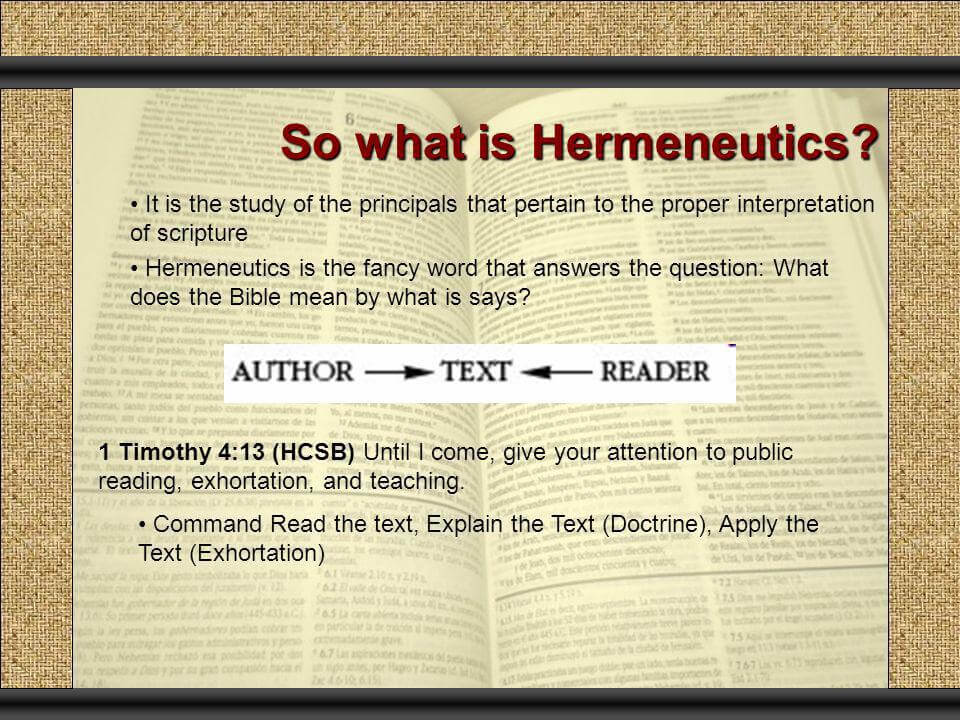Questions
Description
1. How does Keener address the issue of experiential presuppositions in relationship to interpreting biblical texts? What does he mean by "reading from the vantage of Pentecost"? Evaluate Keener's hermeneutical approach on this matter. Then explain your own approach to it in relationship to Keener's, especially identifying aspects of your own approach which are different from or not addressed by Keener.
Answer: Keener looks at the topic of experiential presupposition in relationship to interpreting biblical text in that all who read scripture experientially will "engage the text more sympathetically and concretely." (Keener, Spirit Hermeneutics, 25). Keener speaks to reading the Bible from the vantage of the Pentecost, which means that while reading the Word, the reader reads scripture missionally, humbly and with an eschatological point of view. I appreciate how keener speaks about reading experientially, especially when he says "Getting to know God's heart in Scripture where it is clearest helps us hear his voice elsewhere as well." (Keener, Spirit Hermeneutics, 41). According to Keener, reading the scripture experientially goes beyond the research and the word studies to taking to heart what scripture says. So, it's not just taking the facts that Jesus died on the cross as fact, but it's also internalizing what that means to change your life. While we study scripture, through word studies, and read commentaries to understand the original meaning and intent, reading scripture experientially is taking it into your life and letting it change how you live and see the world. Keener also says that "a Christian reader should have both sound understanding of the original message and consequent insight into how it speak to our setting." (Keener, Spirit Hermeneutics, 31). So, Keener is saying that we shouldn't just take scripture and see how it fits and works for us, but we should also do diligent research. I agree with Keener's hermeneutical approach to scripture. Reading the Word is not just about learning facts and determining original meanings of the text, but it's believing it. As a person who grew up in the Pentecostal traditions, reading scripture experientially has been ingrained through the teaching in the church. I agree with Keener in that he doesn't discount that research is valuable, but he believes that internalizing scripture is one of the key components to learning more about God through reading scripture.2. How does Keener deal with context in biblical interpretation, that is, both ancient and contemporary contexts? Take an example from Keener and explain how this example addresses the issue of context related to a particular biblical text. Then provide an example of your own which moves from Keener's approach to your own.
Answer: Keener deals with context in biblical interpretation by saying "Scripture offers models and worldviews that we can appropriate only as we read with faith. Without ruling out valuable historical insights from other forms of research, we can learn to read Scripture at a fuller level or mode that trusts and looks for the divine purpose there." (Keener, Spirit Hermeneutics, 173) In other words, learning the history and intended meaning can help us understand scripture on a deeper level. However, Keener says that a person's presuppositions, or what forms their world view is also important to a person's interpretation of scripture. Thus, if a person's worldview is broken, so will their interpretation of scripture. As Keener writes, "a fallen worldview becomes a lens that inevitably distorts reality." (Keener, Spirit Hermeneutics, 186) In other words, if you don't have the right foundation to view scripture, you're going to interpret it wrong. This is why determining the historical and biblical contexts is so important for those who study the bible. In ancient times, scripture were not as studies as they are today. Mostly because the books themselves were read as whole. Keener gives an example of scripture interpretation through the telling of the account of interpreting "Don't be far from me!" in the Psalm 22:11 and other passages. Keener says that this was used to show "God is present and active, even when he seems far off." (Keener, Spirit Hermeneutics, 28) Keener says these verses aren't making excuses for God how seems far off, but shows that we can feel like God is far away even when is not. I believe that we can learn lot about God from scripture, such as in 2 Peter 1:2, which says "Grace and peace be multiplied to you in the knowledge of God and of Jesus our Lord." Through knowing God more, it is revealed that grace and peace will increase in our lives. The passage tells us how to be closer to God, and implies that without a knowledge of God, we won't have grace and peace. From being both close to God, and feeling that he is far away, I can confirm that this scripture speaks truth. Knowing God brings peace to your life.3. If you were to teach a course at a church or for those in Christian communities without the benefit of biblical and theological education on hermeneutics, how would you do so? Go into as much detail as possible in this essay.
Answer: I have to say that I were asked to teach a course, and I had no biblical or theological education, I would be honored to be asked. As a leader in my church, I have been asked to teach, and here are the steps I took before I had formal training. First, I would pray over the scripture I was asked to teach, asking God to reveal what he would like me to bring out in the passage to others. This is important, because the Holy Spirit can reveal things in scripture that I may not see right away. Second, I would read through the passage several times to familiarize my self with the text. With each reading, I believe new things and little nuances of the scripture would come out. This is important because in order to teach scripture, knowledge of it would need to be in depth. At this point, I would start to takes notes on the passage and try and form an outline of the key points from the passage, and bring out what it has taught me so far, and how that might be applicable to others. I would prepare questions to ask the class to engage them in lesson as well. The next thing I would do, is try and either speak to someone who is more knowledgeable about scripture, such as a pastor, look in a good study Bible, or look online for some good commentaries about the passage, and compare what they say about the passage from what I had already come up with and to learn more about the background of the book. This would help give support for and agree or disagree with what I though was important in the passage and fill out the content of what I'd like to teach. After I had written the lesson, I would pray over it until it was time to teach in order to be fully prepared to teach God's word. And then, when it came time, I would teach the lesson with humility that I will never know all that there is to know about scripture.
Info







